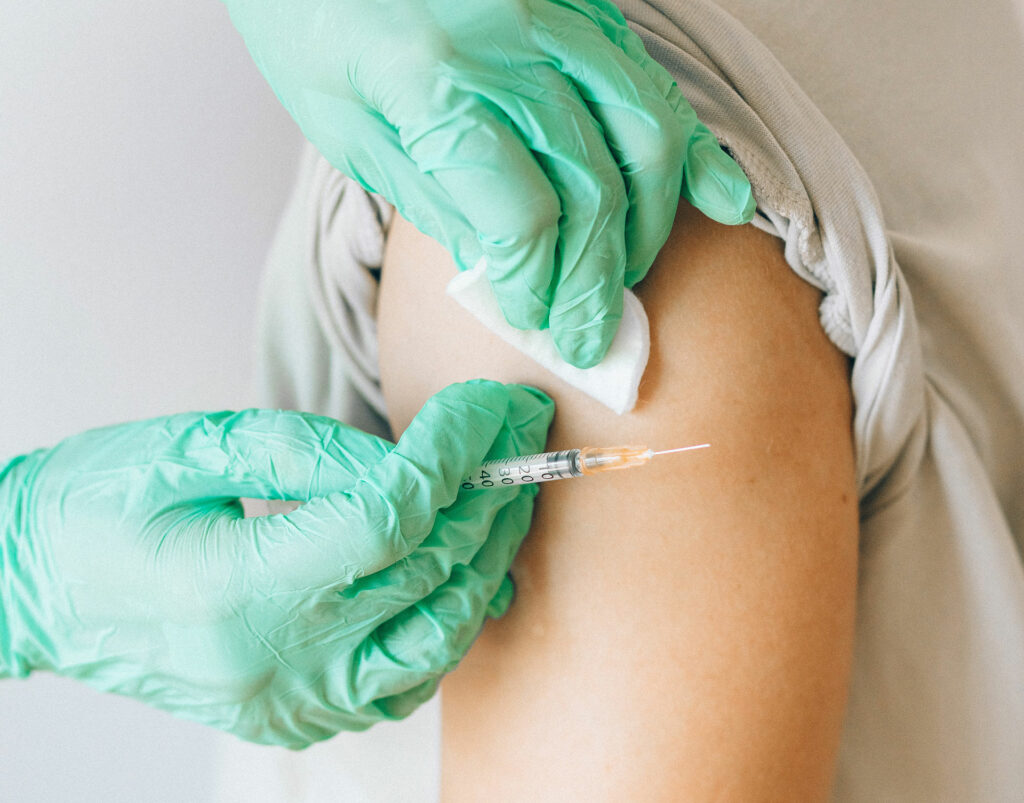You may have seen reference to the human papillomavirus (HPV), otherwise known as the human warts virus, from a smear result in recent years. This blog contains everything you need to know about HPV. As the leading cause of cervical cancer, smears are now primarily checked for the presence of HPV before any further examination is performed. So convinced are we that smears will be normal in the absence of HPV infection that they can be discarded.
I have had many a call from distressed patients questioning their partner’s fidelity on receipt of such a result. In fact, their exposure has almost certainly occurred years, if not decades, earlier and never caused changes to their cervical cells and thus smears. Only now it is being looked for, and for good reason; HPV is responsible for over 99% of cervical cancers. Fortunately, we now have an effective vaccination, in addition to our screening programme, in the UK.
Everything you need to know about HPV
What is HPV?
HPV is a virus which is fiercely prevalent in the population; indeed, almost everyone who engages in sexual activity will develop at least one strain of HPV during their lifetime. There are over a hundred strains that collectively make up the HPV family, and only a minority are linked to cancers, including cervical, anal and oropharyngeal (mouth and throat).
High-risk HPV types
Strains 16 and 18 are the major culprits; responsible for most HPV-related cancers. These are known as high-risk strains.
You might wonder, does high-risk HPV go away? Somewhat reassuringly, 90% of HPV infections are cleared by the body spontaneously within two years, but still, there are thousands of cases of cervical cancer each year, making it a significant worldwide health concern.
How long has HPV been around?
HPV was first discovered in the 1980s. Thanks to research and medical advancements, we can now offer a number of preventative measures for cervical cancers.
How is HPV transmitted?
HPV is transmitted through genital skin contact, oral sex and/or shared use of sex toys. You can catch HPV the first time you are intimate.
What are the symptoms of HPV?
Most people with HPV have no symptoms and thus do not know that they have it. Sometimes the virus can cause painless warts around the genitals or anus. Warts are caused by a different strain of HPV to those that cause cancer, so they are not a precursor.
How is HPV tested for?
Cervical HPV is tested in the cells taken from a cervical smear. It can also be tested on a self-taken low vaginal swab, but this should not substitute for a cervical smear test. There is no blood test for HPV.
Can I cure HPV?
For the vast majority, the immune system will eradicate HPV and even in those that don’t, it is unlikely that it will cause cancer, but of course, we can monitor the smear to ensure it.
The NHS Vaccination programme – How long has the HPV vaccine been out?
The development of vaccinations targeting the Human Papillomavirus (HPV) represented a significant advancement in preventive medicine.
In 2008, the HPV vaccination was introduced for all girls aged 12-13. Since 2018 school boys were also offered vaccination. Previously it was administered as a course of three, but from this month, it has been reduced to a single vaccine.
What is the HPV vaccine made of?
The HPV vaccine contains a destroyed version of the human papillomavirus (HPV). This does not put you at risk of developing HPV from the vaccine itself. You will be asked to confirm any allergies before the injection is administered.
Why is the HPV vaccine not recommended after 26?
Research into the HPV vaccine concentrated on subjects aged between 16 and 26 and was clearly shown to be effective. NHS vaccination programmes must be cost-effective to be introduced and are therefore driven by research findings.
In addition, HPV vaccination is most effective when given before a person is exposed to specific HPV strains i.e. before they become sexually active. However, it can also be effective in preventing infection with a strain that has perhaps not been encountered by the sexually active woman or man. There is also experimental data to suggest it may help mount an immune response to eradicate an existing HPV infection.
HPV vaccine side effects for females and males
As with many other injections, it’s normal to experience some mild side effects for a short while after. You should monitor these side effects and seek advice if you become unwell.
- Swelling or pain at the injection site
- Headaches
- Body aches
- Feeling dizzy
- Feeling sick
- Feeling tired
We hope this article has been useful regarding everything you need to know about HPV. Don’t hesitate to contact us if you have any questions.
Dr Summerhill is a GP and Menopause Specialist. She qualified from Guy’s, King’s and St Thomas’s (GKT) School of Medical Education in London in 2007. She qualified as a GP from the Royal College of General Practitioners (RCGP) in 2015 and has undertaken specialist training in women’s health having achieved diplomas from the Royal College of Obstetricians and Gynaecologists (DRCOG) as well as the Faculty of Sexual and Reproductive Health (DFSRH). She has the Letter of Competence from the FSRH for both coils and implants. Dr Summerhill has undertaken extensive training in menopause management and holds an Advanced Menopause Specialist certificate with the Faculty of Sexual and Reproductive Healthcare.

